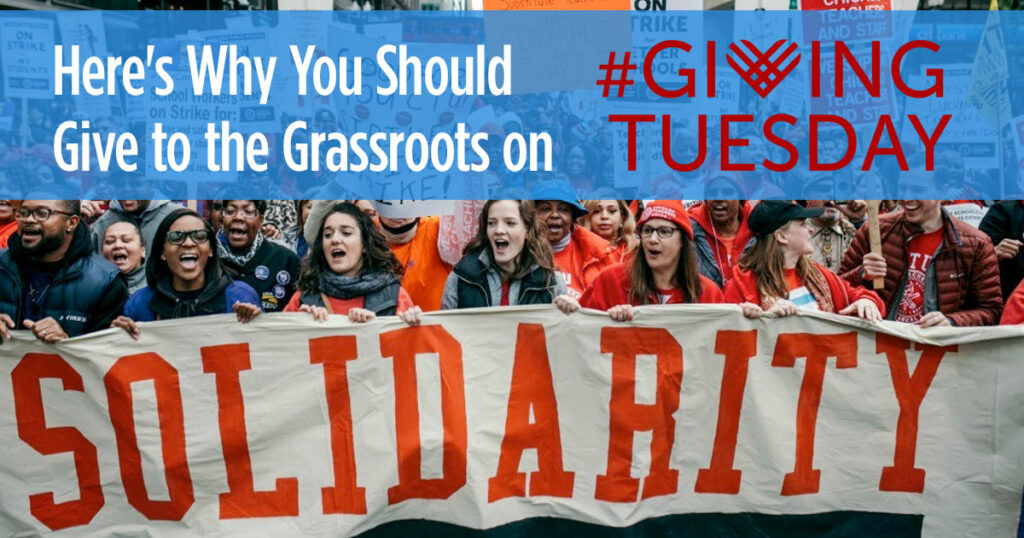Blog
Here’s Why You Should Give to the Grassroots on #GivingTuesday

First conceptualized by the 92nd Street Y and implemented as a day of global charity in 2012, #GivingTuesday has continued its rise in popularity, carving a place alongside Black Friday and Cyber Monday as notable days of the holiday season.
And its premise and intent are noble: take a moment during the whirlwind of holiday spending and direct some of those funds toward social causes, not just shopping. The statistics sound equally impressive, with GivingTuesday.org reporting more than $400 million raised by the holiday in 2018 alone, and a total of $1 billion over the movement’s lifespan.
Is there a problem with this? Not exactly. But let’s take a minute to consider where our donation dollars are going. Several years ago, the Chronicle of Philanthropy found that out of the 1.5 million charitable organizations in the United States the top 400 charities—0.027%—received more than a quarter of all donations. Gifts of all sizes, from small individual contributions to large corporate donations, tend to gravitate toward a relative few organizations at the top.
So what happens to the smaller grassroots organizations, often under-staffed and under-resourced, working on the front lines of social change? If they do opt in to #GivingTuesday’s festivities, they are usually spending a lot of time on preparation and promotion for a disproportionately small return. And on Wednesday, they will continue their work for movements across the country, still under-staffed and under-resourced.
In addition, for groups going up against the powers-that-be, political problems can turn into funding problems. Recently, a Schott grantee, Worcester Interfaith in Massachusetts, led a campaign with the Worcester Coalition for Education Equity to demand local accountability in order to stem decades of low academic support and disproportionate punishments of Latino and other students of color. In the context of political pushback against their efforts, Worcester Interfaith lost an important source of funding.
Schott was able to step in and provide Worcester Interfaith with some strategic support and a second round of funding support so they could continue their important coalition work, which has since led to the first-ever community-informed racial equity goals tied to the Superintendent’s contract and performance evaluation. While local accountability to communities of color continues to be an uphill battle across the nation, groups like Worcester Interfaith count on support from outside of the community to fulfill its mission.
Supporting racial justice groups with shoestring budgets is our specialty. For more than 25 years, the Schott Foundation for Public Education has partnered with grassroots organizations across the United States working for education justice. We recognize that true change comes from the bottom-up, and by supporting organizations that belong to their members and their communities we’re nurturing the kind of social movements that have always been key to building a better world.
Last year, the average #GivingTuesday gift size was $105. Whatever the size of your donation, we encourage you to give to a local group working for education justice in your community. If you’re looking for bang for your buck, nobody knows how to stretch a dollar like a grassroots organization. They’re fighting for a better world for all of us, and every penny gets us one cent closer.
Need help picking a group? Take a look at our grantee list and find one that resonates with you. Or you could give to Schott directly, and we’ll make sure your donation goes where it’s most needed:


